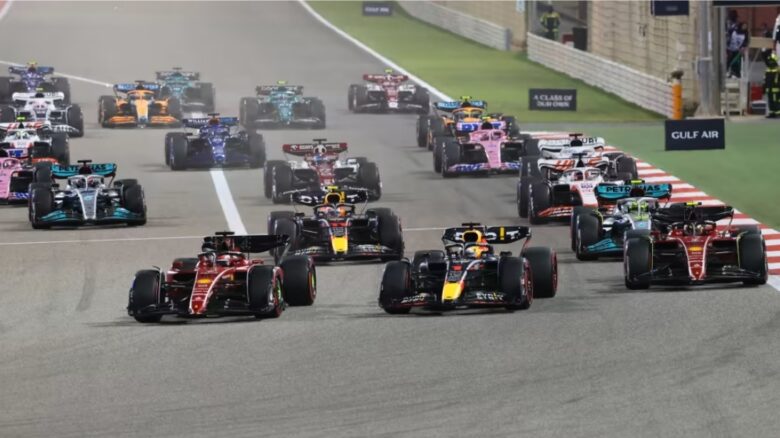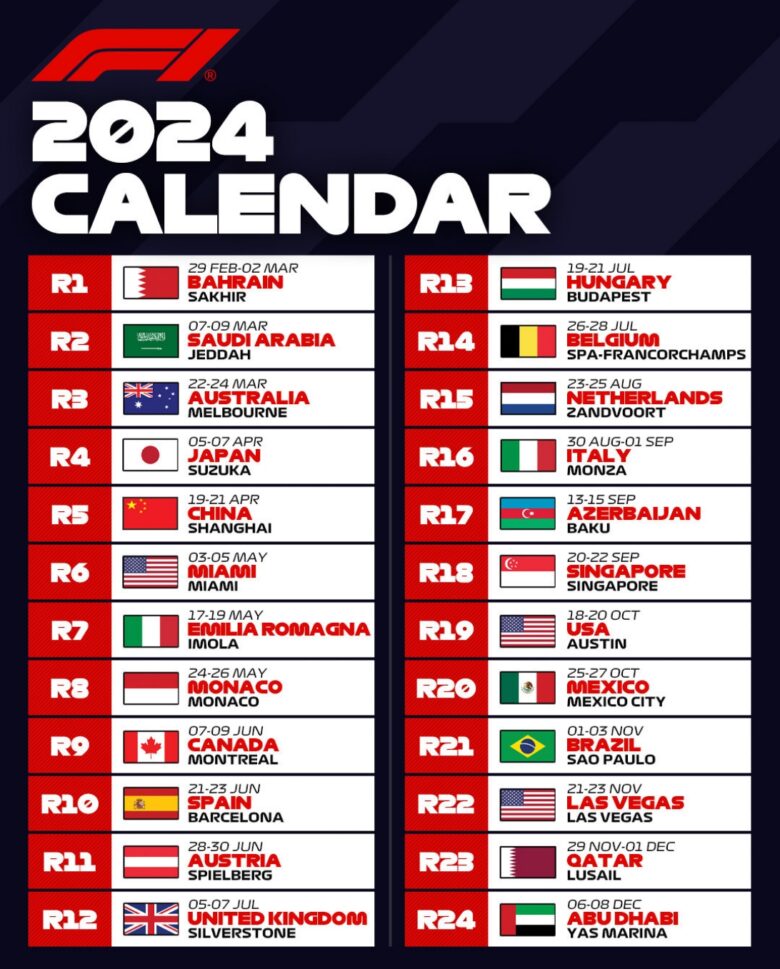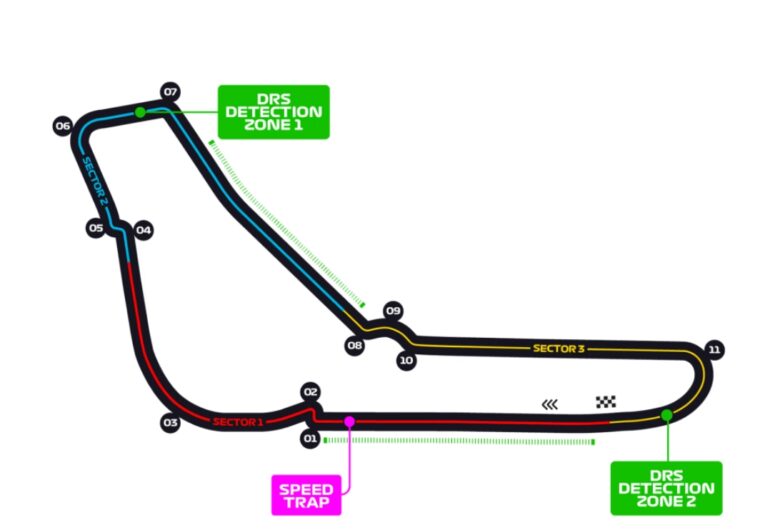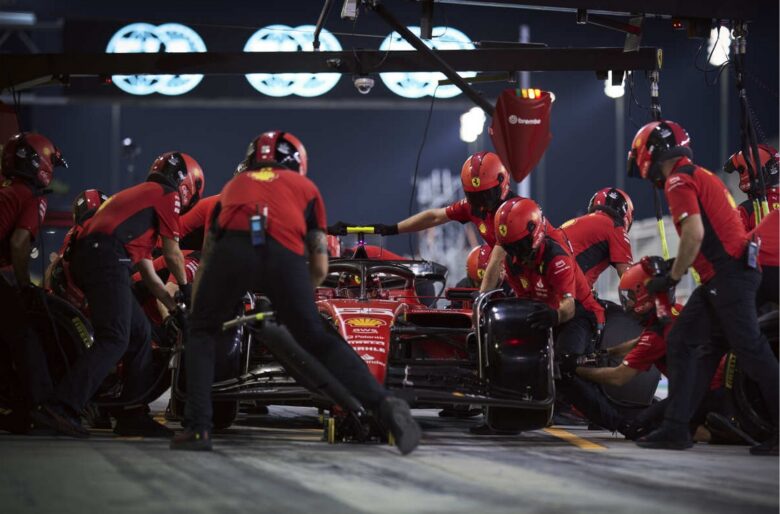Welcome to the thrilling universe of Formula 1 racing, where speed, precision, and strategy converge on the world’s most iconic tracks. From the adrenaline-pumping roar of powerful engines to the tactical brilliance of top-tier teams, join us as we delve into the exciting realm of Formula 1, exploring its unique terminology, legendary drivers, and the pulse-quickening moments that define this pinnacle of motorsport excellence.
Contents
All things you must know about Formula 1 Racing
Discover all the essential insights about Formula 1 racing, from iconic tracks and legendary drivers to cutting-edge technology and heart-pounding race dynamics.
Cars
F1 cars are technologically advanced machines, designed for speed and performance. They are typically constructed with lightweight materials such as carbon fiber, and each team designs and builds its own chassis.

F1 cars are technologically advanced machines, designed for speed and performance.
Teams and Constructors
Multiple teams participate in Formula 1, each fielding two drivers. Some of the well-known teams include Mercedes, Ferrari, Red Bull Racing, and McLaren. Teams compete not only for driver championships but also for the Constructors’ Championship, which considers the overall performance of the team.
F1 attracts some of the best drivers globally. These drivers compete for individual honors in the Drivers’ Championship. Notable names in recent years include Lewis Hamilton, Sebastian Vettel, Max Verstappen, and Charles Leclerc.
Race Format
A Formula 1 season consists of a series of races, known as Grands Prix, held on various circuits worldwide. The races take place over a weekend, with practice sessions, qualifying, and the main race on Sunday. Points are awarded based on finishing positions, contributing to both driver and team standings.
The current scoring system awards points to the top 10 finishers in each race, with the winner receiving the most points. Additionally, there are bonus points for the driver who sets the fastest lap in the race, provided they finish within the top 10.
Formula 1 has strict technical and sporting regulations that govern aspects such as car design, engine specifications, and race conduct. These regulations aim to maintain fairness, safety, and competitiveness within the sport.
The Formula 1 calendar includes races held on a variety of circuits, ranging from traditional tracks like Silverstone and Monza to street circuits like Monaco and Singapore. The season typically spans from March to December.

The Formula 1 calendar 2024
The FIA (Fédération Internationale de l’Automobile) is the governing body for Formula 1. It establishes and enforces the rules and regulations, ensuring the integrity, safety, and fairness of the sport. Formula 1 is a hub of technological innovation. Teams invest heavily in research and development to gain a competitive edge. Advancements in aerodynamics, materials, and hybrid power units have often originated from F1.
Historical Significance, Media and Fan Engagement
Formula 1 has a rich history dating back to the 1950s. Iconic moments, legendary drivers like Ayrton Senna and Alain Prost, and historic rivalries contribute to the sport’s allure.
Formula 1 enjoys a massive global fan base. Races are broadcasted worldwide, and the sport actively engages fans through social media, events, and interactive experiences. Formula 1 represents the pinnacle of motorsport, combining speed, skill, and cutting-edge technology in a high-stakes competition that captivates audiences around the world.
Set of Terminology
Formula 1, the pinnacle of motorsport, has a unique and specialized set of terminology that is integral to understanding the sport. Here are some key Formula 1 terms:
- Grand Prix (GP): A Grand Prix is a term used for a Formula 1 race. Each race is often named after the location where it takes place, such as the “Monaco Grand Prix” or the “Italian Grand Prix.”

Italian Grand Prix
- Pit Stop: A pit stop is when a driver comes into the pit lane during a race to change tires, refuel (when permitted), or address any mechanical issues.
- Qualifying: The session where drivers set their fastest lap times to determine the starting grid for the race.
- Grid: The starting lineup for a race, determined by the qualifying session.
- Formation Lap: The lap taken by the drivers before the race begins to warm up their tires and prepare for the standing start.
- Lights Out: The moment when the race officially starts, signaled by the extinguishing of the starting lights.
- Pole Position: The driver who qualifies in the first position and starts the race from the front of the grid.
- Fastest Lap: The driver who sets the fastest lap during the race is awarded an additional point, provided they finish in the top 10.
- DRS (Drag Reduction System): A system that allows drivers to open a flap on the rear wing, reducing aerodynamic drag and promoting overtaking when certain conditions are met.
- Blue Flags: Flags shown to backmarkers to inform them that a faster car is approaching, signaling them to yield to avoid impeding the leading cars.
- Safety Car: A car that enters the track during a race to neutralize the competition in case of an accident or adverse conditions.
- Chicane: A sequence of tight corners, often introduced to slow down cars on a straight portion of the track.
- Podium: The raised platform where the top three finishers in a race celebrate and receive their trophies.
- Team Principal: The leader of a Formula 1 team, responsible for strategic decisions and overall team management.
- Constructor: A term referring to a team that designs, builds, and enters their own Formula 1 car.

The Constructor in F1 racing
These terms provide a glimpse into the unique and thrilling world of Formula 1 racing.
The summary
In conclusion, Formula 1 Racing stands as a captivating blend of speed, skill, and technological innovation. From the legendary races on iconic tracks to the strategic brilliance of teams and the indomitable spirit of drivers, the world of Formula 1 is a thrilling testament to the pursuit of excellence in motorsport. As we conclude our exploration, the exciting odyssey through the high-speed universe of Formula 1 leaves an indelible mark on enthusiasts, reminding us that in this realm, every second counts, and every victory is a celebration of extraordinary achievement.
Formula 1 racing is very interesting. However, you can have fun with online casinos with Kubet.
